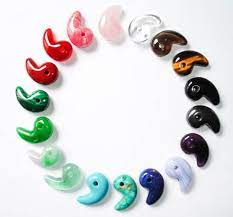Sugawara no Michizane
Sugawara no Michizane and the Early Heian Court
byPicture taken from Goodreads on July 31st, 2025
Who was Sugawara no Michizane? Today, he has been deified with the old Shinto god Tenjin and identified as the god of learning. Shrines to him are spread across Japan, and he is commonly worshiped by those writing a test to get into university.
However, the man in life was rude, arrogant, and critical of anyone he didn't like. He was unable to handle criticism of himself or his poetry. If you praised him, he was your best friend and lifelong supporter. His family was from a lower caste and not true blood nobility, but Sugawara rose to one of the highest positions in Japan under Emperor Uda by the close of the 9th century. He was a master of Chinese learning, but proposed ending the tribute arrangement to China. At the time, it was because China was experiencing profound unrest and rebellion. Sugawara no Michizane was worried for his safety and the safety of the delegation. This was to have lasting consequences and shut Japan away from China for centuries, allowing it to develop a more unique culture.
After Uda retired, Sugawara was framed for insurrection by the other nobles and scholars jealous of his position and forced into exile in 901 to Dazaifu in Fukuoka. There he died under house arrest in 903, protesting his innocence. His vengeful ghost became an Onryo and has been linked to the death of Fujiwara Tokihira and his scholarly rival, Kiyoyuki.
I first started reading this book to discover more about the Onryo side of Michizane. He was a scary creature and caused the death of many, or so it is said. In the years since his death, his life has been mixed with myth so profoundly that it is hard to tell the two apart. The information about this was confined to the last chapter, but I'd hoped for more.
Most of the book by Borgen was quite dull, explaining Michizane's early years and education. His deification into Tenjin occupied the final chapter and was the more interesting part of his story. Then he was a vengeful god, so different from how he is regarded today.
If you want an overview of early Japanese court life and how the society functioned, by all means read this book. If you want to learn about the ghost side of his life, you will be disappointed. I enjoyed it, but will probably not read it again.


Comments
Post a Comment